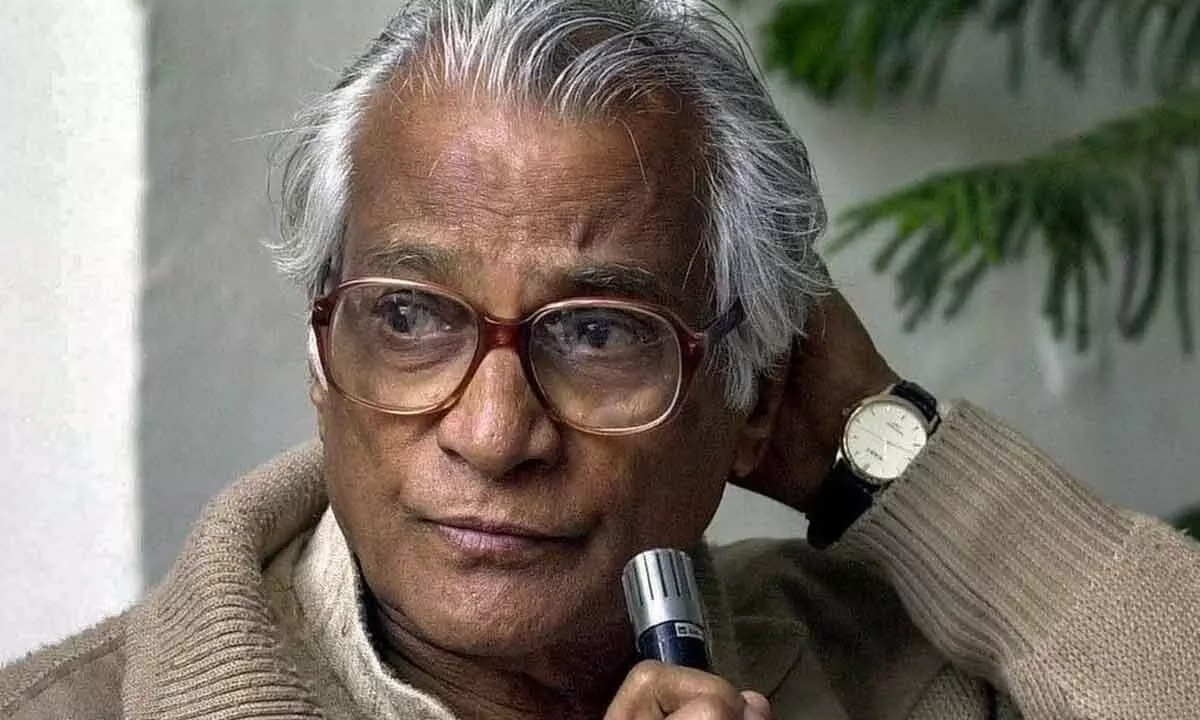Insider-outsider debate is unwarranted
Fortunately, for the right-thinking men and women in this country, insider-outsider question has not been raised so far in this year's election
image for illustrative purpose

Fortunately, for the right-thinking men and women in this country, insider-outsider question has not been raised so far in this year's election. It has not been a debatable point. The focus has shifted to corruption and role of central agencies like the Enforcement Directorate or ED.
The filing of nomination papers is on and an intensive campaigning has been launched for the upcoming Lok Sabha election. The tempo is rising day by day. But, no one is asking whether the candidate in a particular constituency is an insider or outsider. This debate is unnecessary because everyone who is an Indian is an insider. But a few leaders in this country love to create controversies and survive only because of such baseless debates.
It may be recalled that several time chief minister of Gujarat and 2014 Lok Sabha candidate Narendra Modi was also called an outsider by vested interests. It's another matter that voters gave a damn to them. Similarly, a controversy was created when Arun Jaitley had contested from Amritsar in 2014. The Congress had raised this bogey even at that time.
Surprisingly, this question was raised by a party which had fielded an outsider as early as in 1952 when the first Lok Sabha election was held. A Malyali, C Krishnan Nair, was selected for a Delhi seat. He was endearingly called Delhi Gandhi. Nair had played an important role in establishment of the Delhi Development Authority (DDA). He had also won the Lok Sabha elections held in 1957. The same Congress which had given ticket to Nair had made Sucheta Kriplani, who was born in Ambala and belonged to a Bengali family, its candidate for New Delhi seat. Later, Sucheta ji had become chief minister of the biggest state of the country, Uttar Pradesh also. Sucheta's husband was a famous freedom fighter Acharya Kripalani who was an MP from Bhagalpur and later from Sitamarhi in Bihar. He was a Sindhi. Shri. S.M. Banerjee was a long-time MP from Kanpur. A Bengali-speaking Banerjee had migrated from Bengal to Kanpur. He was a famous labour leader.
Clearly, those who have asked insider/outsider question do not know that every Indian citizen has an equal right to live anywhere or contest elections from anywhere. George Fernandes, after Kriplani, is another example. He hailed from the South, joined labour movement in Mumbai, but; had made Bihar his second home. Biharis too did not consider him an outsider and treated him like their own. He used to speak Bhojpuri and Maithili, two local dialects with ease. The people of Bihar sent George to the Lok Sabha several times from Muzaffarur, Bihar. He won the Lok Sabha elections from Mumbai as well.
The country has hardly seen a labour leader like George-- a simple man with casual look-- dishevelled hair, unironed dress (kurta-pyjama) and ordinary chappal. But as a speaker he was sharp and logical. He used to always do homework and come prepared for a debate in the House. A man of international standing, he had given tough time to treasury benches. The caste equations did not favour him but he had won one election after another with ease.
In 1962 as well as in 1967, Bihar sent a Marathi to the Lok Sabha. He was from Pune. There have been many other such leaders in the Rajya Sabha, but rarely in the Lok Sabha. Limaye's childhood was spent in Maharashtra. He completed his education from there. But he chose Bihar to contest elections. For the first time, he reached Parliament by winning the election from Munger in 1962. In 1964, the Socialist Party and Praja Socialist Party were merged and the United Socialist Party was formed. Madhu Limaye went to the Lok Sabha for the first time on USP ticket . In 1973 , Limaye won the election from Banka in Bihar.
Insider, outsider issue was, fortunately, not raised in other countries like Mauritius, Trinidad, Guyana, Kenya, Fiji, and Britain. In the caribbean country Guyana, Cheddi Jagan of Indian origin had become President in the 60s. After that, Indians like Shivsagar Ram Gulam (Mauritius), Navin Ram Gulam (Mauritius), Mahendra Chaudhary (Fiji), Vasdev Pandey (Trinidad), S Ramanathan (Singapore), Rishi Sunak (Britain) , Kamala Harris (America) have become Prime Minister , Vice President and President of different countries. Recently, an Indian citizen, Tharman Shanmugaratnam, was elected President of Singapore.
So, we have to come out of castes, language, religion, gender etcetera. It is because we have members in parliament from Africa to Europe and America and New Zealand. This means that Indians who had gone too far off countries in search of employment are now deciding the fate of those countries.
The list of MPs outside is long. To mention a few, Meva Ramgovind (South Africa) Parminder Singh Marwah (Uganda), and Sonia Virdi (Kenya). Sonia, in fact, is the first Asia-origin woman MP in Kenya. Canada which has many migrants from Punjab and Haryana has also several MPs of Indian origin. Therefore, the only lesson to now learn is, stop insider - outsider debate - without delay.
(The writer is a senior editor, columnist and former MP.)

